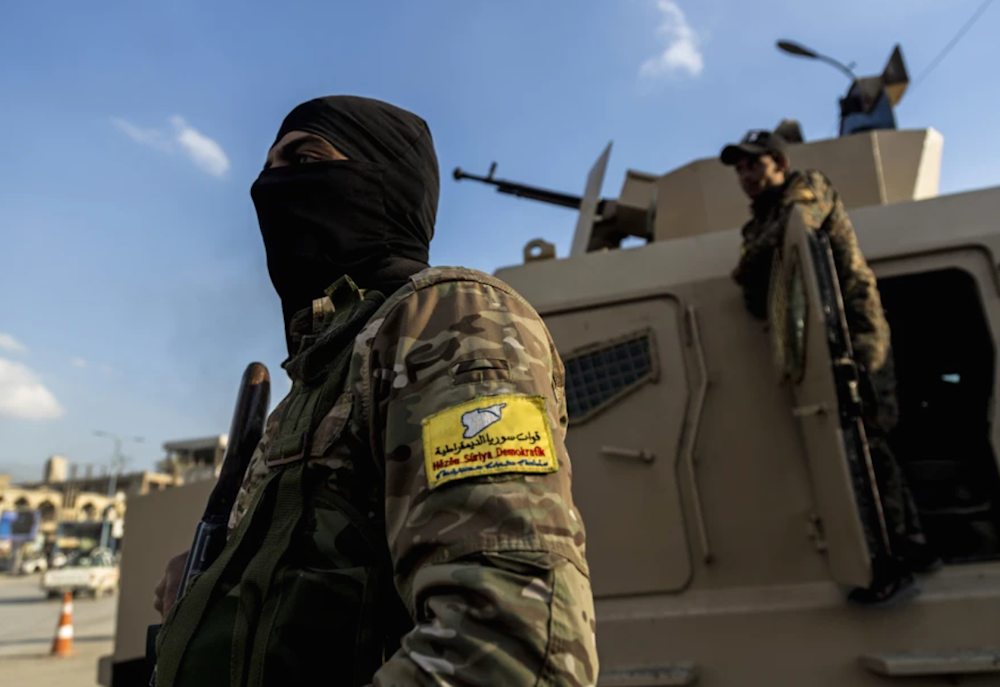Syrian soldier wounded in SDF drone attack near Deir Ezzor
A Syrian army member was wounded in a drone attack by the SDF near Deir Ezzor, as tensions rise over ceasefire violations. Israeli helicopters also flew over Quneitra.
-

US-backed Syrian Democratic Forces fighters stand guard at al-Naeem square in Raqqa, Syria on February 7, 2022. (AP)
A Syrian army soldier was injured on Sunday after a drone launched by the Syrian Democratic Forces (SDF) targeted an army position on the outskirts of Deir Ezzor, according to Syrian state channel Al-Ekhbariya.
The incident comes amid rising tensions, as the SDF recently accused factions aligned with the interim Syrian government of carrying out multiple provocative actions and direct violations of the March 10 ceasefire agreement across Aleppo and Deir Ezzor.
According to a statement issued by the SDF in mid-August, these factions have engaged in “suspicious movements” near Deir Hafer and surrounding villages in recent days. The SDF emphasized that despite these provocations, its forces have maintained restraint and have not responded—but warned that continued violations may force them to act in legitimate self-defense.
Separately, Al-Ekhbariya reported intensive flights of Israeli helicopters over Quneitra province, south of Damascus, at dawn on Monday. The maneuvers further heightened concerns of ongoing instability along Syria’s southern border.
Syrian gov. rejects SDF conference, accuses it of breaching unity deal
A senior Syrian government official reaffirmed in early August the right of citizens to peaceful assembly and constructive dialogue within the framework of a unified national project that upholds Syria’s territorial integrity, sovereignty, and the unity of its people.
Speaking to the Syrian Arab News Agency (SANA) in response to the recent conference organized by the Syrian Democratic Forces (SDF) in al-Hasakah, the official said religious and ethnic groups have the full right to express their political visions and establish parties within legal frameworks. However, such activity must remain peaceful, refrain from taking up arms against the state, and avoid imposing a unilateral vision for the structure of the Syrian state, according to the official.
They stressed that the form of the state cannot be decided through factional understandings or local agreements, but only through a permanent constitution ratified by popular referendum, ensuring equal participation for all Syrians. Any political proposal, he added, must be addressed through public dialogue and the ballot box, not through threats or armed force.
The official said what took place in northeastern Syria does not represent a unifying national framework, but rather a fragile coalition of actors “harmed by the Syrian people’s victory and the fall of the old regime,” reliant on foreign support. Such groups, he argued, use conferences like this to evade future national commitments while ignoring “state constants based on one army, one government, and one country.”
Damascus condemned the hosting of separatist figures and individuals involved in hostile acts at the conference, calling it a flagrant violation of the March 10 agreement. The government held the SDF and its leadership fully responsible for the legal, political, and historical consequences of this breach, describing the gathering as an attempt to internationalize Syrian affairs and reimpose foreign sanctions.

 3 Min Read
3 Min Read








